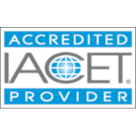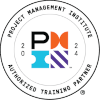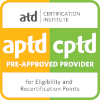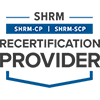Product Details
Topics Covered
- Time management
- Time logs
- Procrastination
- Goal setting
- SMART goals
- Principles of time management
- Scheduling systems
- Automation & digital apps
- Delegation
- Managing interruptions
- Planning effective meetings
Key Features
- Mobile-friendly
- Audio-enabled
- Badge and credit-awarding
- Real-world case studies
- Fully accessible
- Games & Flashcards
- Expert-supported
- Video content
Course Preview
Course Description
Learning Outcomes
- State the key outcomes and goals of effective time management
- Assess your attitudes about your relationship to time and time management
- Employ a time log in ascertaining how you spend your time
- Recognize the common causes of procrastination and identify ways to eliminate your own procrastination
- Identify the key principles of time management (organization, prioritization, and planning) and some common methods for prioritizing tasks (ABC Method and the Eisenhower Method)
- List the key attributes of effective (SMART) goals and recognize the importance of establishing personal and professional goals
- Identify the value and purpose of common time management tools, including scheduling systems (activity logs, action plans, to do lists)
- Differentiate key characteristics of Action Plans and Task Lists
- Identify the steps in the delegation process and recognize guidelines for appropriate task delegation
- Identify strategies for handling daily tasks and distractions, such as e-mail, phone calls, and other interruptions
- List the guidelines for planning effective meetings
Notes
This course has an "Ask the Expert" feature, which submits your questions directly to an expert in the field you are studying. Questions are answered as quickly as possible and usually within 24 hours.
As an Accredited Provider, MindEdge offers for its learning events that comply with the Continuing Education and Training Standard.
Learners must achieve an average test score of at least 70% to meet the minimum successful completion requirement and qualify to receive credit. Learners will have three attempts at all graded assessments.
Project Management Institute, , the Registered Education Provider logo, Project Management Professional, , Project Management Body of Knowledge, , Agile Certified Practitioner, -, Risk Management Professional, -, the Talent Triangle, and the Talent Triangle logo are marks of the Project Management Institute, Inc.
Information in this course has been taken from A Guide to the Project Management Body of Knowledge, (® Guide) - Sixth Edition, Project Management Institute Inc., 2017.
The following list outlines the you will earn for completing this course, based on the certifications you have.
CAPM®/PMP®/PgMP® |
|---|
| Ways of Working PDUs: 1.5 |
| Power Skills PDUs: 1.5 |
| Business Acumen PDUs: 0 |
| TOTAL: 3 |
PfMP® |
|---|
| Ways of Working PDUs: 1.5 |
| Power Skills PDUs: 1.5 |
| Business Acumen PDUs: 0 |
| TOTAL: 3 |
PMI-ACP® |
|---|
| Ways of Working PDUs: 0 |
| Power Skills PDUs: 1.5 |
| Business Acumen PDUs: 0 |
| TOTAL: 1.5 |
PMI-PBA® |
|---|
| Ways of Working PDUs: 1.5 |
| Power Skills PDUs: 1.5 |
| Business Acumen PDUs: 0 |
| TOTAL: 3 |
PMI-RMP® |
|---|
| Ways of Working PDUs: 0 |
| Power Skills PDUs: 1.5 |
| Business Acumen PDUs: 0 |
| TOTAL: 1.5 |
PMI-SP® |
|---|
| Ways of Working PDUs: 1 |
| Power Skills PDUs: 1.5 |
| Business Acumen PDUs: 0 |
| TOTAL: 2.5 |



